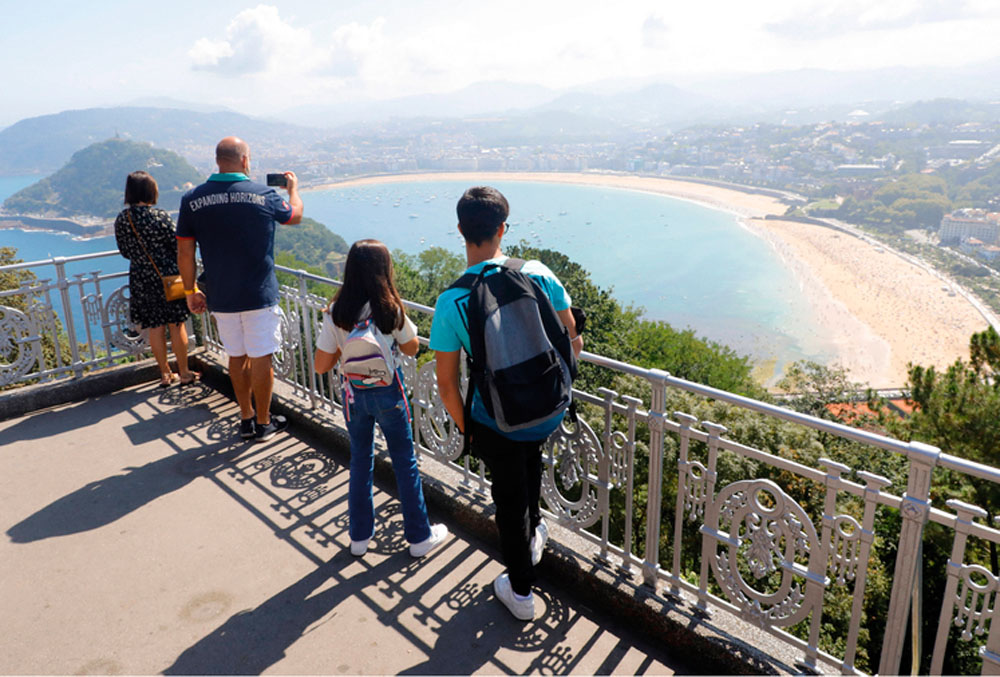"I run for my health, there is no more mystery."
- It's one of the oldest corridors in Gipuzkoa. Since 1978 he has not stopped running. However, the story of Jokin Sarasola has several edges: The history of the poet Lotsati, nationalism, the family, the Spanish Civil War, the Basque…
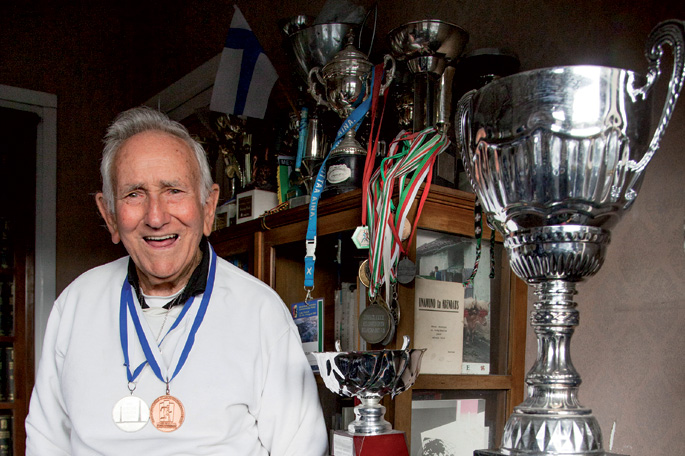
Juan Iñaki, Gurutz, Andoni, Edurne, Terese, Imanol, Kelmen, Arantza, Jokin… The names that appear are: abertzale, arandarra.
We have names in Basque, both in baptism and in registration. The older brother is Juan Iñaki, as the grandfather was Juan Martín. All the others have names in Basque. My mother was Abertzale, Paula Martínez. He was born in Itsasondo, but his parents came to San Sebastian and lived here on Narrika Street. He was very nationalist, and he was propaganda for women to name their children in Basque. His father, a Carlist guy, was mayor of the PNV in Itsasondo before the war. After the war he was put in jail, he was fined… We were nine brothers and, in 1940, when my mother died, my father sent me to the boarding school, Lekaroza. So I was 12 years old. Once, the four brothers from Athens went to do a demonstration. However, there he dominated football, not the ball. Atano II, III, IV and VII. They gave exhibitions, and almost every student at school played soccer. Looking at the ball, two cats. Also those from Athens realized: “We, here, the best in the world, and the students in football!” Atano III.ak wanted to introduce his son to Lekaroz, but when he saw the environment in which he lived, he put him in Oronoz.
You also studied in Oronoz-Mugaire.
I curated the first studies and started studying Commerce in the same Lekaroz, but those studies took them out in Lekaroz and put them in Oronoz-Mugaire, and there I went. There he walked in a ball with my son Atano III.aren. He died very young, at the age of 32-33. But that wasn’t a pelotari… In Oronoz School there was a fraile, Brother Second, of Berriz, a football fan. It was Ball Day, and all the pelotaris passed through there. All but Dionisio Onaindia of Gernika. In our school, an exhibition of professionals was made. And Miguel Gallastegi. I played at Elizondo and maybe I came to school. In addition, Gallastegi played the sweet ball against three of the students of the Polytechnic School of Donostia. If I had taken the ball out of now, it would have been over! The students wouldn't have seen it! I'm seen in Gros, on the fronton of yesteryear, the World Championship. France had opposed Spain. Aranbillet was France and Atano III was Spain. It was Franco's times. Everyone put their balls. The Aranbos are light and the Atanos are heavier. The saque, then, was free and Atano did a lot of damage to him by the saque. It was also more in the piloting. Aranbillet, for his part, was the best defended with volea…
You've put me to fight, but you're a runner.
Before I became a runner, I've been a pelotari. I did it every day by hand, on the fronton of Amara. The young people were going to play with the rubber ball, and sometimes, as they waited, I would tell them. “Do you want to play by hand in the meantime?” we started. He would win easily. They had a much better time than mine, but they didn't know it by hand. He was also going to Errondo, the fronton behind the San Juan de Dios Clinic. Take the ball by hand, the racket, the shovel… Go out in shorts at home and there!
How did you start running?
I'll tell you how I started running… I was looking out the window and I saw people running. 1978. Also the older people running! I asked: “What the hell is going on here, all the people running?” And they said to me, “They’re training for the marathon.” Marathon? “I will do it too!” Physically it was fine, I was going to the mountain, to the ball, and this and that. I started going around San Sebastian, I went to the Iron Bridge and I went up the Urumea. But I trained so badly, I soon had my feet loaded. And I stopped doing that first marathon in San Sebastian. In February came the small marathon of Azpeitia. Pikua was a bar at the organizers. I debuted there. The old Bethlehem Azpeitia was also there, running. I ran and heard: “Aupa, Belen!”, “I’m going next to Bethlehem, I’m not going wrong!”… Then, I made my debut at the second marathon in Donostia. I did 3:40, I think. Next time I went down: three-and-a-half hours. I've always been wasting my time. Even though I was older, I had more experience. I ran three marathons in a row, and then I left. Since then, I've done popular careers. Then it was almost every Sunday…
Even today, he has opted for the Berria newspaper in Donostia-San Sebastián.
Yes, the last one. And next year, I have the idea of going to Lyona, to the World Cup. For now, I'm doing gymnastics and running every day. I'm running for my health, the ball, the mountain… It's healthy. In any case, a year ago I was very disappointed, on one occasion I lost ten kilos. He slowly recovered. At least, they didn't look for me in trouble and they moved on. I am a naturist, lacto-bejetarian: dairy, eggs and vegetables. There is no fish or meat in my diet, though as from time to time. So it is over!
Out of the window of this house, once, you saw people running and you also started running...
Yes.
This house has history, the people who lived there…
Aitzol lived here with her sister Zoila. Before the war, I was a kid. I was 8 years old when the war began. I remember there was a fountain. The cure, Aitzol! Our brother Gurutze, from Lotsa, had a very close relationship with Aitzol. Gurutz was a poet and often used to go to Aitzol. In addition, Aitzol was the head of the Kursaal Poxpolinak group, and that was where I was going to study dance. I also remember that it was a homeland day, and how we marched to Atotxa… Here the atmosphere was totally Castilian. Now, too, but anyway. They were two friends, one was the Arriaga, another Mas. Arriaga, in Spanish; Mas, in Basque. We called that Mas “the Basque”, because he knew Euskera. Hence things, then, in this environment!
You were all Euskaldunes.
From the coast. Until 4 years old, I didn't know Spanish. My brother Imanol and I went to ikastola to Etxaide Street. It was the time of the republic. I don't know if it was a ikastola or a daycare center, but we were there for two to four years. Then we got into the Sacred Heart, on Sánchez Toca Street. It was the time of the republic. My mother went to director Mujika: “Don’t you teach it in Basque?” and the other doesn’t. But as the school was close to home… and I lost the Basque. All in Spanish. He had two brothers in Madrid studying mining engineering, and at home he talked about everything in Spanish. But were Euskaltzaindia meetings not held in Spanish at the time? All in Spanish! And when I studied in San Sebastian and Bilbao and went back to Itsasondo to work, at home I spoke in Spanish. When he came from outside, with him in Euskera! It was the same thing that Campanilla counted. That in his house he spoke in Spanish, that his father did not speak in Basque with anyone but with the baserritarra.
You've talked to us about my brother, Gurutz Sarasola, Lotsati.
I was twelve years older than me. My father sent Lekaroza. He also studied in France. I don't think he was a factory calling either. Then she met a peasant. Girl, farmer; our brother, son of the industrialist. Two worlds -- it couldn't be. My brother got a little wrong. He jumped to the train on the Iron Bridge, young, 20 years old. I don't know what was said about my brother's death, he was very small. I wrote in The Day, poetry. Anjel Lertxundi wrote an article in which he said that in the Basque literature there are three L, three poets that died young: Lauaxeta – he was shot – Lizardi – who died ill – and Lotsati. "Look, you mentioned Lotsati! I said to myself. De Lotsa does not have the category of Lizardi and Lauaxeta, but, look, Lertxundi mentioned Lotsati. I can't say much, because I don't know much, because at that time I was a kid. I remember a few things, though. As soon as the war ends, I've seen people die, throw it on the train. I remember, a man, and how they stopped their antiojadas… The train station was there.
At Donostia, you participate in the Bageraren Mintzalaguna project. You have something to tell...
Yes, I also participate in this program, yes. In that and in many other things I give the day now: running a little, gymnastics, stretching, doing…
The axe?
I made three bets. I haven't seen anyone on the beach, but for three or four years I've done an axe on the beach. I have been cutting logs brought by the sea in the Zurriola, La Concha and Ondarreta de San Sebastián. Also in Getaria. “If you’re going to do an axe, go to the forest!” they told me. "Before you go to the forest, this serves to make it a little harder! I replied. I also play chess. If I have a friend, he really likes to play chess. But I win and get angry with me. And he hasn't done it for a while. Now I play online against the computer. I've been working for a long time. But you can't win the machine, it's not easy. Last year, I was worse in health, but I recovered. I would like to take part in next year’s Lyon Master Championship. I've already told you, I run for health, because sport is healthy. There's no more mystery.
Jokin Sarasola (Itsasondo, 1929) Gipuzkoako korrikalaririk zailduenetakoa da. Bere adineko askorik ez da gure bazterretan lasterka dabilenik. Peritu eta Maisutza ikasi zituen Donostian, eta Intendente ikasketak egin zituen Bilbon. Arbel fabrika zuten etxean, eta hantxe egin zuen lan 1970ean itxi zen arte. Harrezkero, arbel salmentan jardun zuen, erretiratu arte. Kirolari da betidanik (pilotari, aizkolari, mendizale…), eta korrikari lotu zitzaion 1978an, Donostiako lehenengo maratoiaren garaian. Korrikalari ibili da hemen eta munduan. 2009an Atletismoko Master Txapelketan maratoian parte hartu zuen Finlandian –bigarren egin zuen, deshidrataturik ibili ondoren–, eta hurrengo urtekoari begira jarrita dago.
“Leitzan korrika, herri lasterketan, eta Iñaki Perurena! Erabat flakatuta, 105 kilo izango zituen orduan. Pasatu egin nuen aurrerago, eta esan zidaten: ‘Hi, Perurena daramak hor atzean!’. Begiratu nuen, eta hantxe Perurena. Azkartu egin nuen eta bera baino lehenago ailegatu nintzen, lau-bost metro. ‘Juxtu-juxtu irabazi haut!’, esan nion, eta berak: ‘Zenbat urte dituk?’, eta nik, orduan, 73 izango nituen. Berak, berriz, nik baino 30 gutxiago!”.
“Karrera nudista bat korritu nuen Sopelan, Barinetxeko hondartza basatian. Han zen Luis Elberdin sexologo famatua ere. Eta esan zuen: ‘Parte-hartzaileetan, Jokin Sarasola donostiarra izan dugu. Poz ematen du halako jendeak, adin horretan korrika’. Handik, Mundakatik pasatu nintzen, amuko txipiroiak jatera. Amukoak! Casinora bidali ninduten, toki dotorera. Ovo-lakto-begetarianoa naiz, baina txipiroiak, tak!”.
“Argia baino lehen, Zeruko Argia ezagutu nuen nik. Gure aita zenak etxean jasotzen zuen aldizkaria. Kaputxinoak ziren. Zeruko Argia eta Arantzazu jasotzen ziren gure etxean. Baina, behin, etorri zitzaidan Arantzazuko fraidea eta esan nion: ‘Gaztelania sartzen hasi zarete, eta lehenago ere badira hemen gaztelaniaz ari direnak. Izena eman dut Argian’. ‘Baina horiek ez dute sinesten!’ esan zidan. Kar, kar, kar…”.
“Kolegioan, Oronozen, hangoak eta hemengoak ziren estudianteak. Nik dena erdaraz egiten nuen. Bazen Azpeitiko jendea, eta haiek dena euskaraz egiten zuten, beti. Baita jolas-orduan ere! Eta, detaile bat!, haserretzen zirenean ere bai. Batzuk, euskaldunak, haserretu eta erdaraz hasten dira. Haiek ez, haserretuta ere euskaraz! Azpeitian zer indar duen euskarak!”.
Iñigo Cabacas Herri Harmaila taldea eta Athleticen arteko harremana nahaspilatuta dago azkenaldian. Iñigo Cabacas Herri Harmailako Iñigorekin hitz egiteko aukera izan dugu astelehenean.
The achievement of the Euskadi Selection has undoubtedly been a historic achievement. But if you stick to that, for many Basques – I too, because I am Navarro – it will be the darkest and saddest day. After enjoying the joy and warmth of the first few days, let's go back to... [+]
After so many years of struggle for it, 34 years, precisely, we are very pleased with the decision taken a few days ago, on 28 December, Innocent Day, in Pamplona, at the assembly organized by the International Federation of Basque Ball. Well, from now on we will have the... [+]









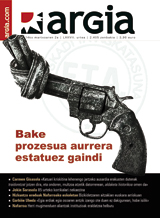


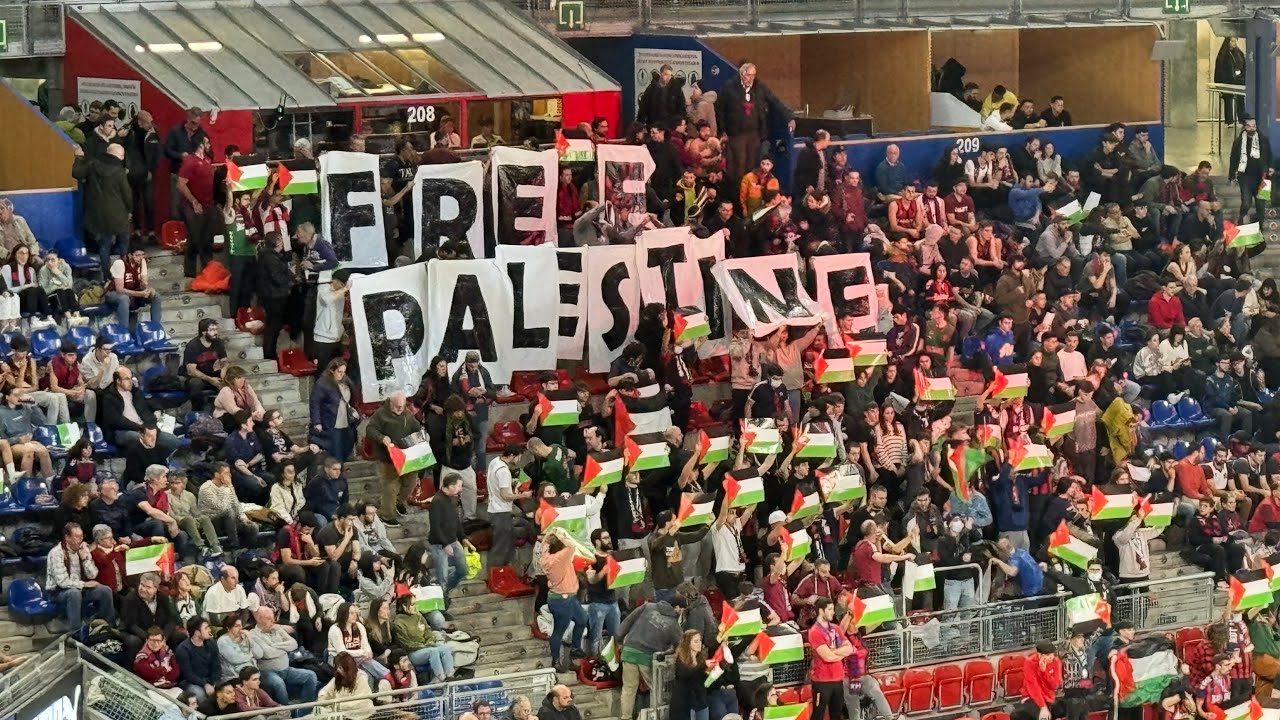
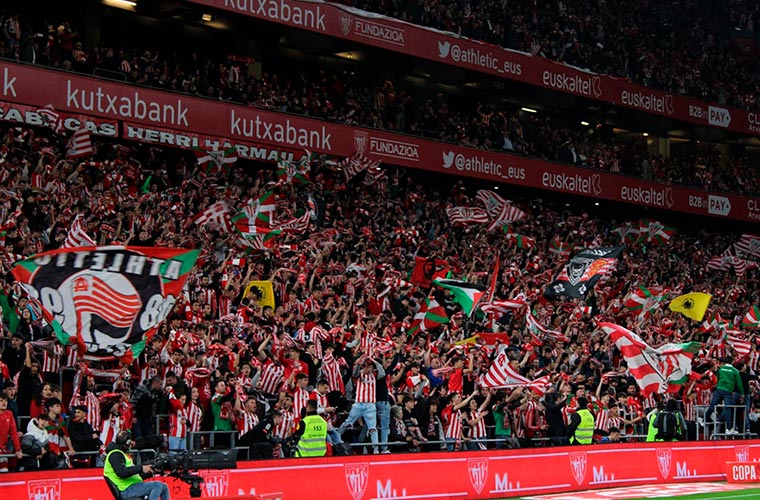

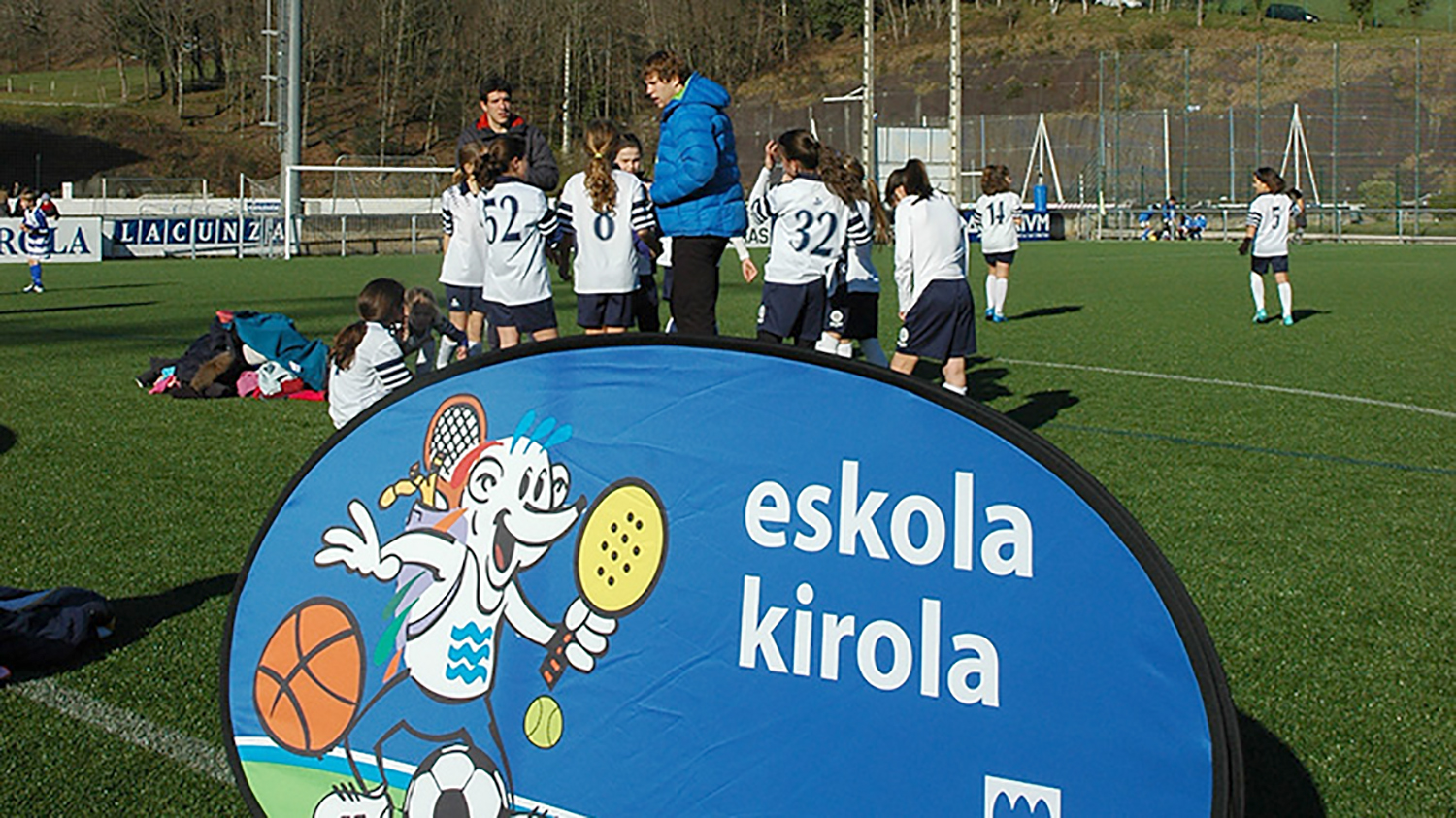
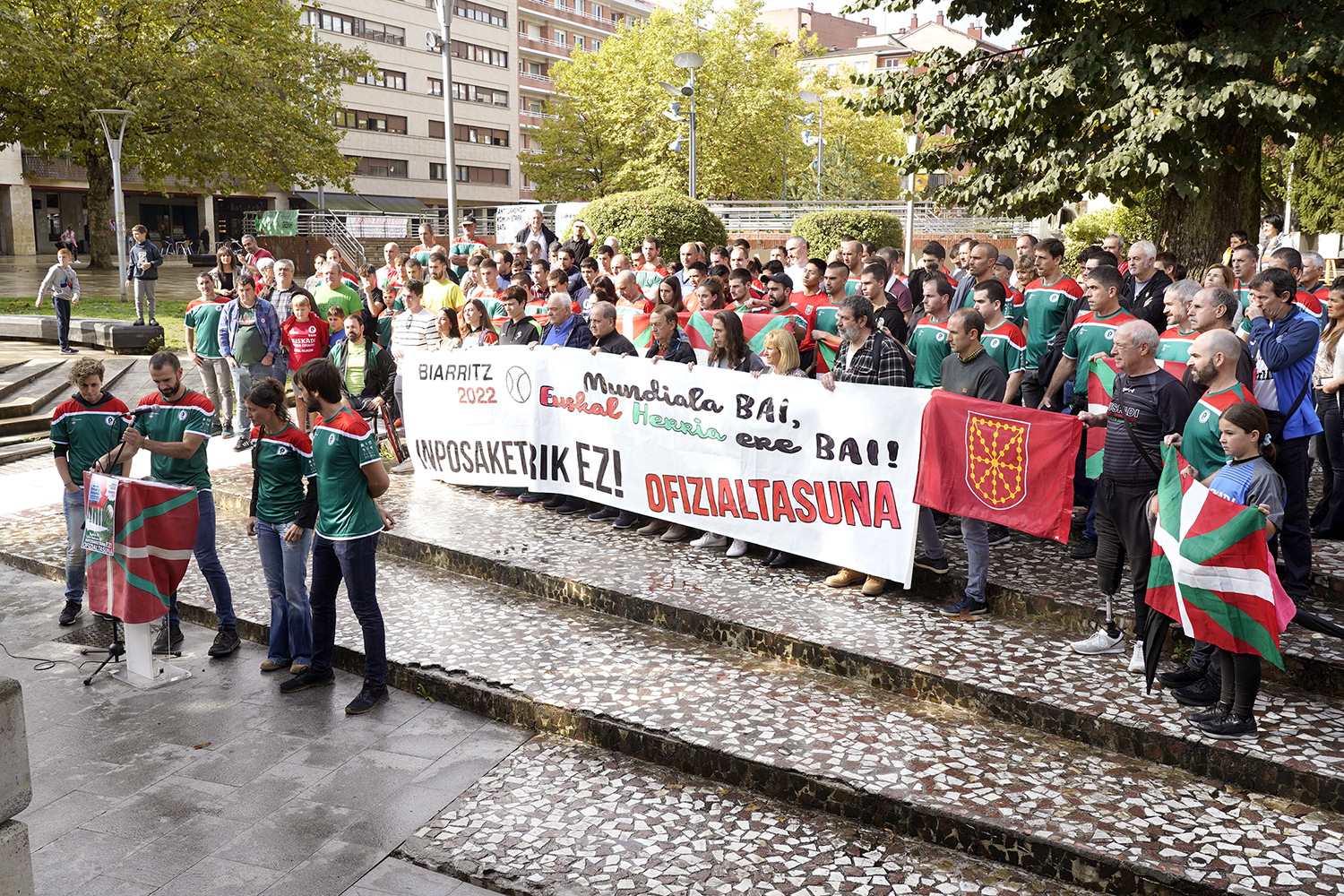
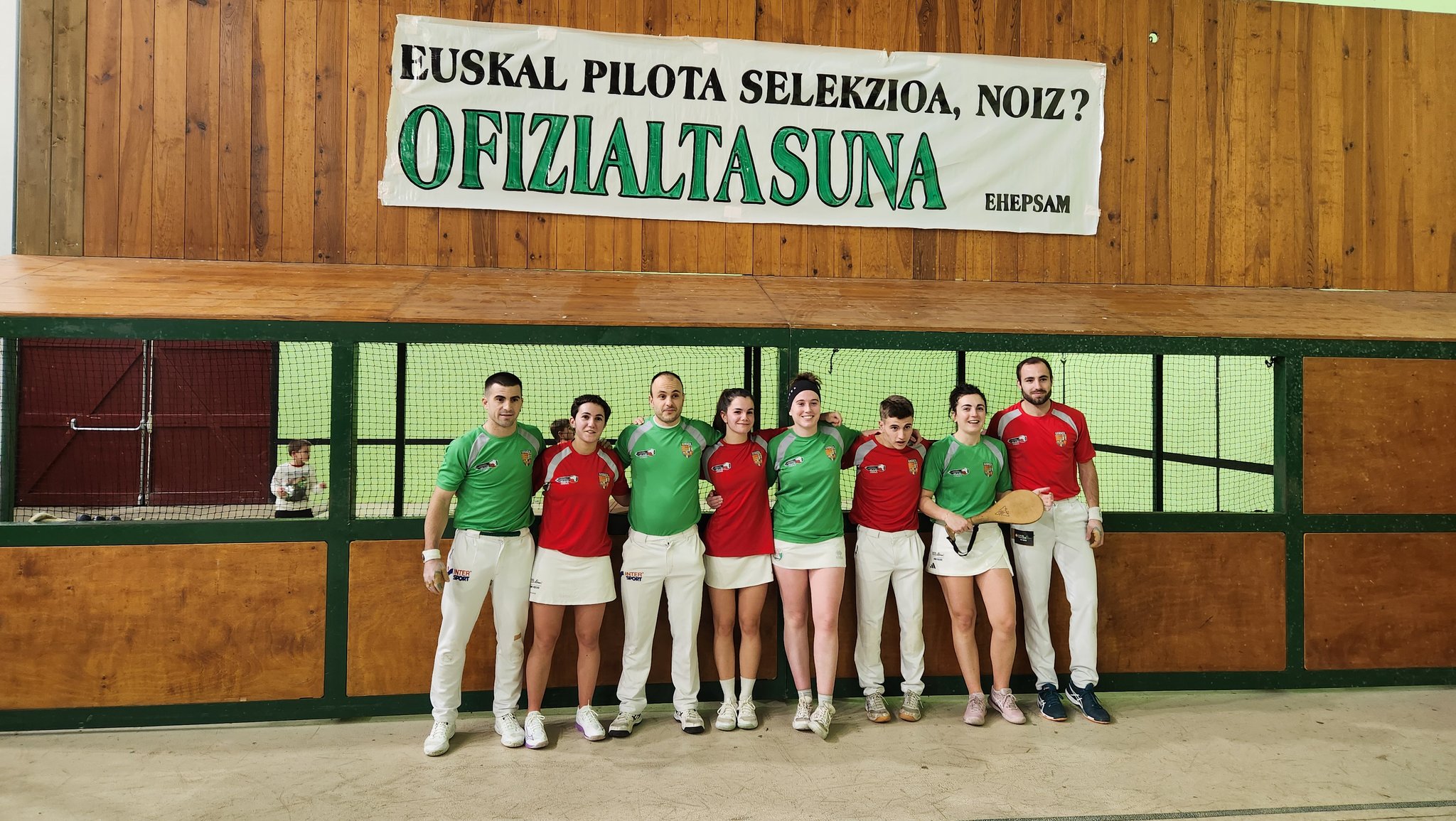
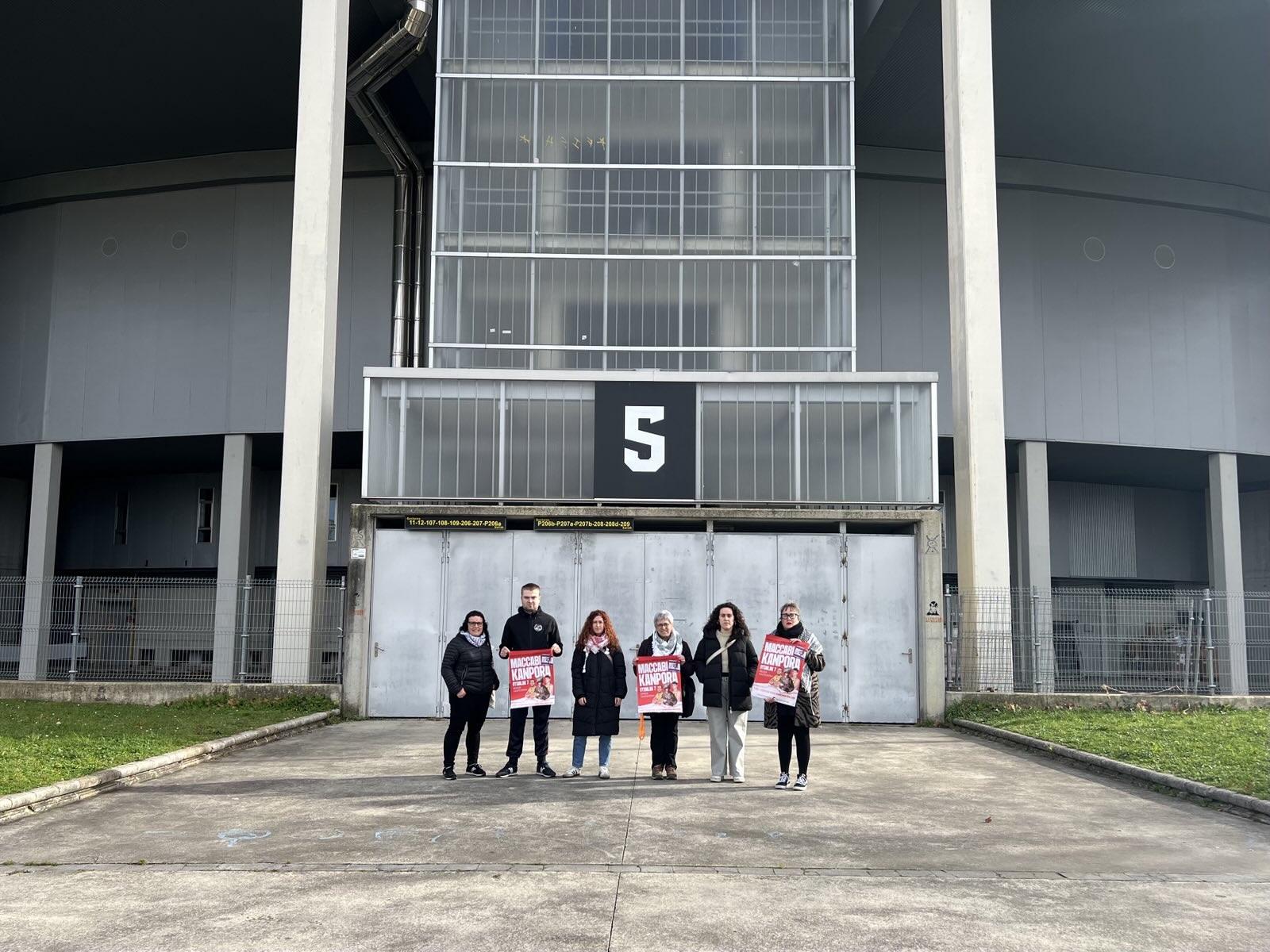

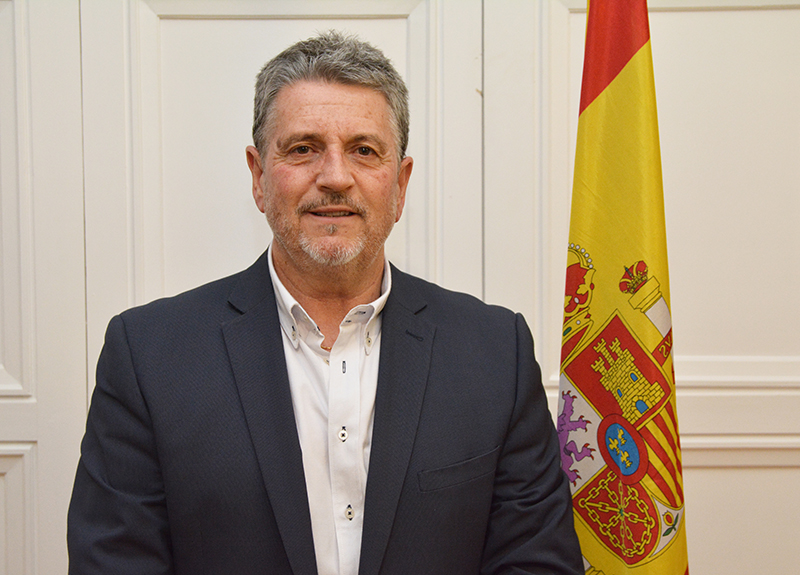

.jpg)
